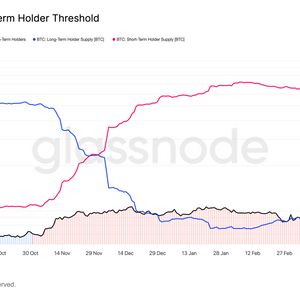A new United States Office of the Comptroller of the Currency (OCC) interpretive letter provides guidance for national banks’ activities with cryptocurrency. The agency emphasized that it permits a range of activities with crypto, and it confirms and reaffirms those activities. It also rescinds guidance from 2021 that banks found burdensome and discriminatory. The OCC’s Interpretive Letter 1183 of March 7 is the first to be issued under Acting Comptroller of the Currency Rodney Hood, who was appointed to his post on Feb. 11. Hood is quoted in a press release as saying that the letter ensures “Bank activities are treated consistently by the OCC, regardless of the underlying technology.” Hood further said he would “continue to work diligently to ensure regulations are effective and not excessive.” The OCC’s letter is about letters Interpretive Letter 1183 begins by saying Letter 1179 has been rescinded. That letter required national banks to notify their supervisory office if they intend to engage in any of the activities permitted in other letters. The supervisory office would then evaluate the banks’ adequacy and reply in writing to object to the proposed activities or confirm its nonobjection. That letter was issued in November 2021 under Hood’s predecessor acting comptroller Michael Hsu. The OCC has gained supervisory experience and realized those measures are no longer necessary, the new letter said. The rescission should reduce banks’ burden, encourage responsible innovation and enhance transparency. It also ensures that bank activities are treated consistently, regardless of the underlying technology. In 2020 and 2021, the OCC issued letters concerning banks providing crypto asset custody ( 1170 ), the use of dollar deposits to back stablecoins ( 1172 ) and the use of public blockchains to verify payments ( 1174 ). All of those letters were issued while Brian Brooks was comptroller. Brooks was a former Coinbase chief legal officer. Now the OCC will examine the activities described in those letters, Letter 1183 said. The letter backpedals on joint policy The press release for the new letter stated that the OCC has also withdrawn its participation in the joint statement on crypto asset risks. That document was issued by the Board of Governors of the Federal Reserve System, the Federal Deposit Insurance Corporation (FDIC) and the OCC in January 2023. The joint statement came on the heels of the collapse of FTX and the rest of the events of the crypto winter. “It is important that risks related to the crypto-asset sector that cannot be mitigated or controlled do not migrate to the banking system,” it said. It went on to list eight specific risks. Banks can provide services to customers of any type, the statement read, but “based on the agencies’ current understanding and experience to date, the agencies believe that issuing or holding as principal crypto-assets … is highly likely to be inconsistent with safe and sound banking practices.” It’s still early for jubilation Caitlin Long, founder and CEO of crypto-native Custodia Bank and a long-time critic of banking regulation as it applies to crypto, was reticent in her praise of the new OCC letter. “Amid all the jubilation about the OCC news, #OperationChokePoint2.0 isn’t over until: 1. Fed & FDIC also rescind their anti-#crypto guidance, which is still in effect (Fed & FDIC were far more detrimental to crypto banking than OCC) & 2. @custodiabank has its Fed master account,” Long wrote on X. The OCC regulates national banks, while the Federal Reserve regulates state banks (which are otherwise overseen by state agencies and cannot open branches out of state). The FDIC regulates commercial banks, which are a subset of both state and national banks. Cryptopolitan Academy: Tired of market swings? Learn how DeFi can help you build steady passive income. Register Now
 Bitcoin (BTC) Price Prediction for April 4
Bitcoin (BTC) Price Prediction for April 4











